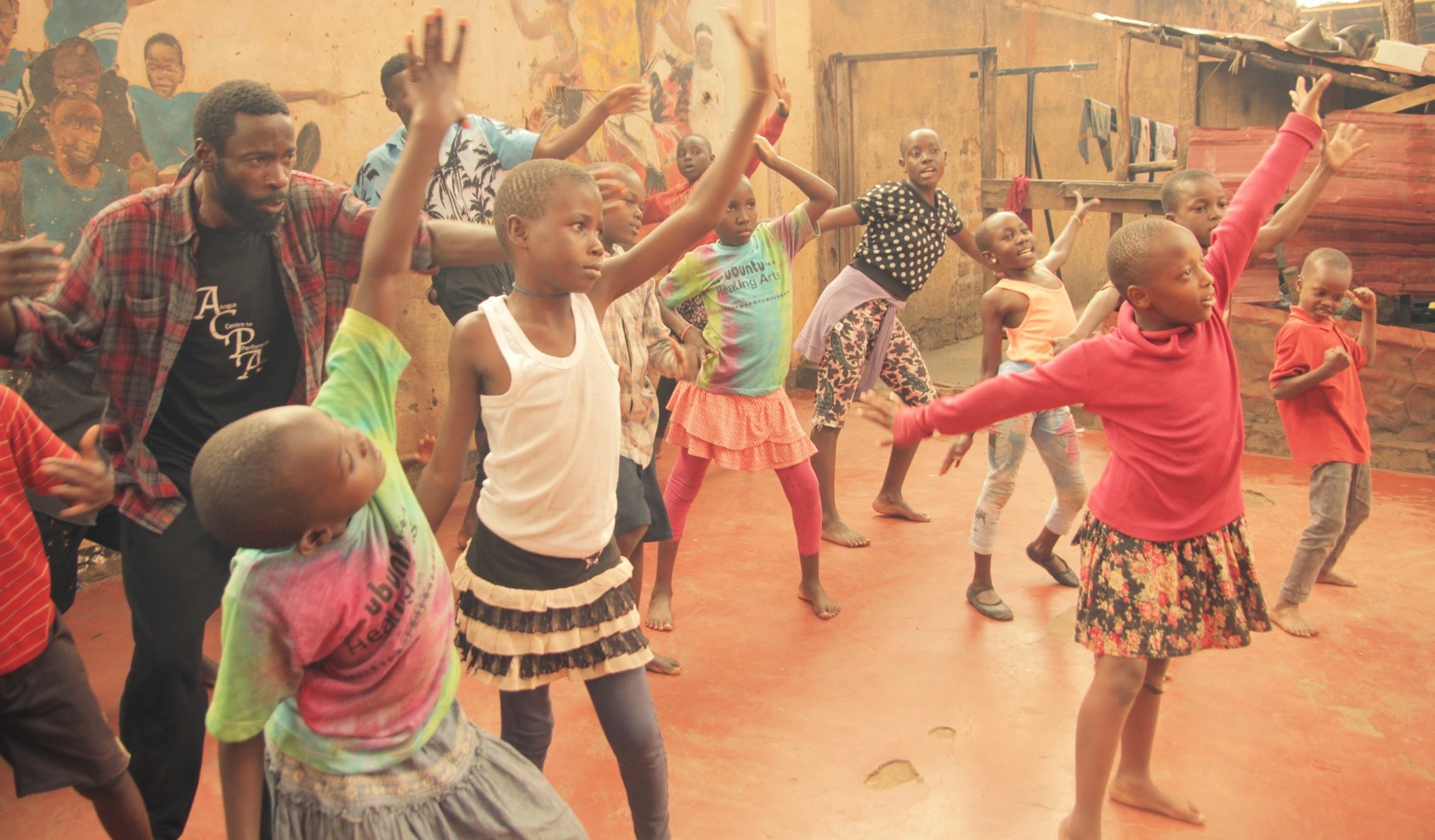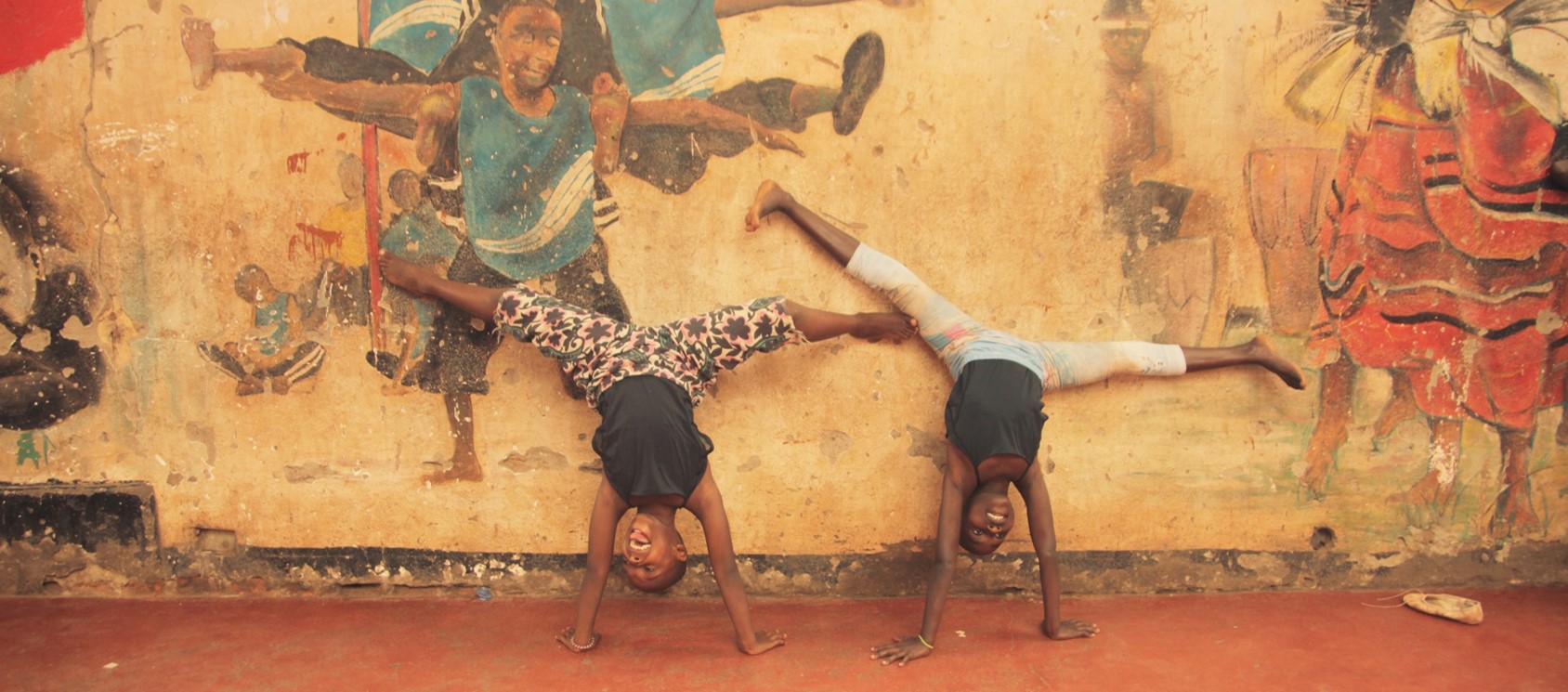
About the Together Women Rise Grants Program
The Together Women Rise Grants Program has two key components that support our overall mission to achieve global gender equality. Featured Grants are largely focused on delivering direct services by funding grassroots organizations that empower and support women and girls in low-income and marginalized communities in the Global South. Our Transformation Partnerships are designed to invest in areas where we can make the biggest impact on achieving global gender equality by addressing the root causes of gender inequality.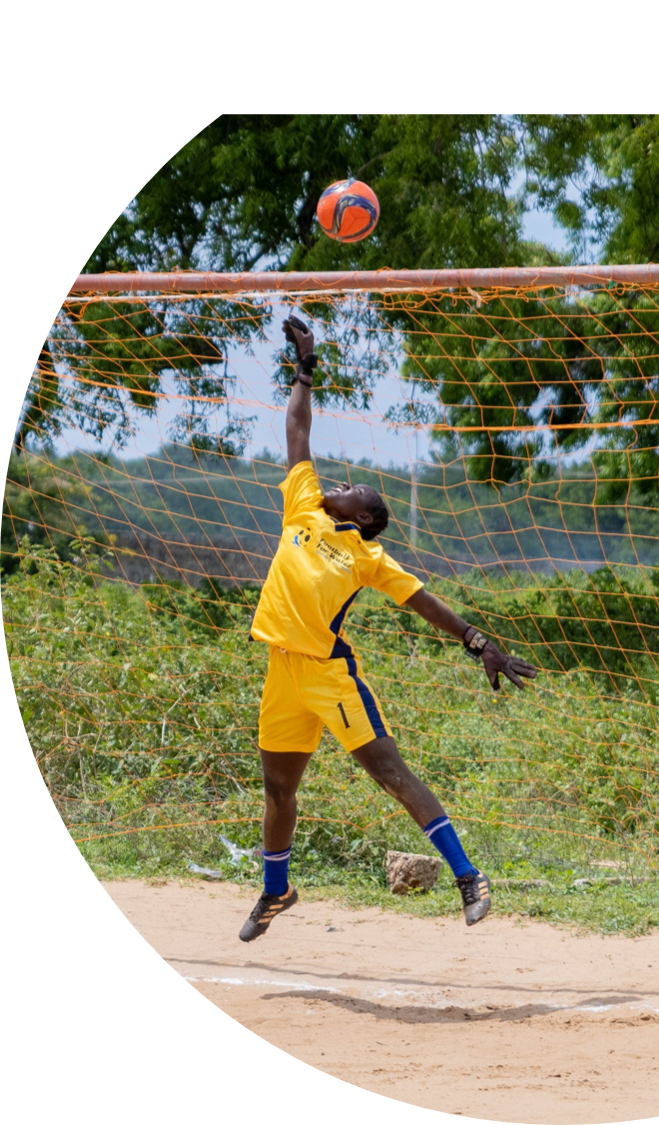
Featured Grants may include:
- Project/Program grantsfund a specific project or program with particular deliverables for a specific timeframe; or
- General Operations grantsto cover an organization’s day-to-day, ongoing expenses, such as salaries, utilities, office supplies, and more; or
- Capacity-building grants to strengthen an organization’s systems and thereby increase its effectiveness.
Through our Featured Grants Program, we highlight a different organization/project each month, providing a variety of learning materials on the issue and how the grant will be used. The following is information on the grants we are featuring for September 2024.
The Global Issue
Using Sports & Arts to Increase Girls’ Agency
No matter what the competition, athletes attract attention and garner respect. Success in uniform means athletes have a platform – their voice is heard. And it is clear that girls are watching. They see themselves in the basketball players who drive record-breaking TV audiences and in the Olympic athletes who champion equality around the world.
|
“Sport is a powerful platform to foster gender equality and empower women and girls.” – Thomas Bach, International Olympic Committee President |
According to UN Women, girls who play sports are more likely to stay in school and delay pregnancy. The confidence and skills gained through teamwork extend far beyond the playing field, providing resilience and empowerment in school, work, and life.
For girls who live in poverty and in communities where they historically lack agency, education, and mentorship, the power of sports – and dance, which is as athletic as any team or individual competitive act – opens doors for girls and the women who lead them. Teaching girls about their rights and creating hope for their future requires access to girls in a supportive environment, and community buy-in to support their participation. Having a common goal and committed practice of a sport brings girls together and creates opportunities for life-changing conversations where they are valued, seen, and heard. Using sport and movement as tools can provide a safe space to address sensitive and taboo subjects like sexual and reproductive health, gender-based violence, and more.
|
The 2023 FIFA Women’s World Cup in 2023 was the most viewed women’s sports event in history with a global audience of nearly 2 billion viewers. |
While most of the young people involved in sports and dance programs will not ascend to the world stage, they can change their future and that of their community. Confidence, resilience, social competence, and autonomy are just the start of the benefits girls can find in dance and sports. Essential life skills such as teamwork, cooperation, communication, and problem solving are inherent in athletic opportunities, and not coincidentally, those “soft skills” help advance girls’ understanding of their rights to be free from violence and to have agency over their health.
The mere existence of girls’ sports – a traditionally male-dominated arena – shakes the gender power order and can change gender norms.
Increasing agency through sports transcends location. In the United States, for example, Grassroots is a Washington, D.C. organization that employs NCAA student-athletes to create a fun, friendly, and safe environment to share their beliefs on topics such as HIV/AIDS testing and prevention, sexual consent, dating violence, and healthy relationships. The use of sports as a vehicle for social change, and the ability of the student-athlete leaders to connect with youth and their families, make this an effective way of learning.
|
In the US, boys and girls between the ages of 6 and 9 are equally enthusiastic about sports, but by age 14, girls stop playing sports at a rate that is six times greater than that of boys. |
About Our Grantee
This month, Together Women Rise is funding two project grants: Mind Leaps and Moving the Goalposts, each with $50,000 project/program grants.
MindLeaps
MindLeaps creates educational paths for at-risk children and youth through the creative arts and 21st Century skills built on data-driven metrics.
Founded in 2014, MindLeaps Founder Rebecca Davis transformed her dance company in Philadelphia into an international non-governmental organization (NGO) when she discovered the power of transforming lives in the Global South. Her dance company produced ballets about social justice, working on issues such as the genocide in Darfur. Rebecca wanted to drive resources into low-income communities affected by conflict after seeing the challenges faced by girls and women in countries like Rwanda and Uganda.
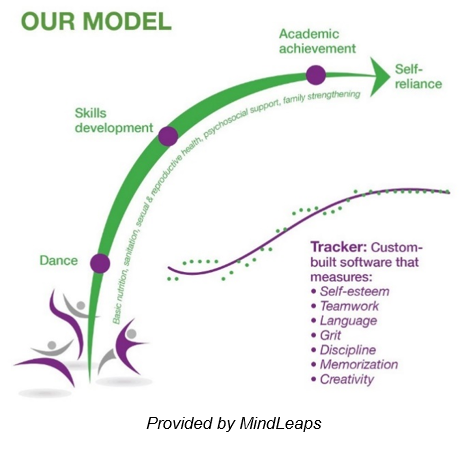 Approaching their 10-year mark, MindLeaps serves over 2,000 children and mothers annually with programming in six countries. Its flagship “Dance and Data” program attracts girls to safe spaces through interactive dance classes that are connected to social-emotional learning outcomes. As girls progress, MindLeaps sponsors them into formal education and enrolls their mothers or guardians in a Family Strengthening Program that provides loans to improve the economic independence of the household.
Approaching their 10-year mark, MindLeaps serves over 2,000 children and mothers annually with programming in six countries. Its flagship “Dance and Data” program attracts girls to safe spaces through interactive dance classes that are connected to social-emotional learning outcomes. As girls progress, MindLeaps sponsors them into formal education and enrolls their mothers or guardians in a Family Strengthening Program that provides loans to improve the economic independence of the household.
MindLeaps was a previous Together Women Rise grantee, receiving a $47,840 grant in 2019 to support the “Building Our Bodies and Our Minds Project” in Mauritania. The goals at that time were to enroll 120 girls over 12 months to develop critical learning skills. Even through the pandemic, MindLeaps was able to surpass its goals in the three targeted areas of education enrollment, psychosocial skills, and nutrition. See specific outcomes from the MindLeaps 2019 final grant report.
LEARN MORE ABOUT MINDLEAPS
Life Challenges of the Women Served
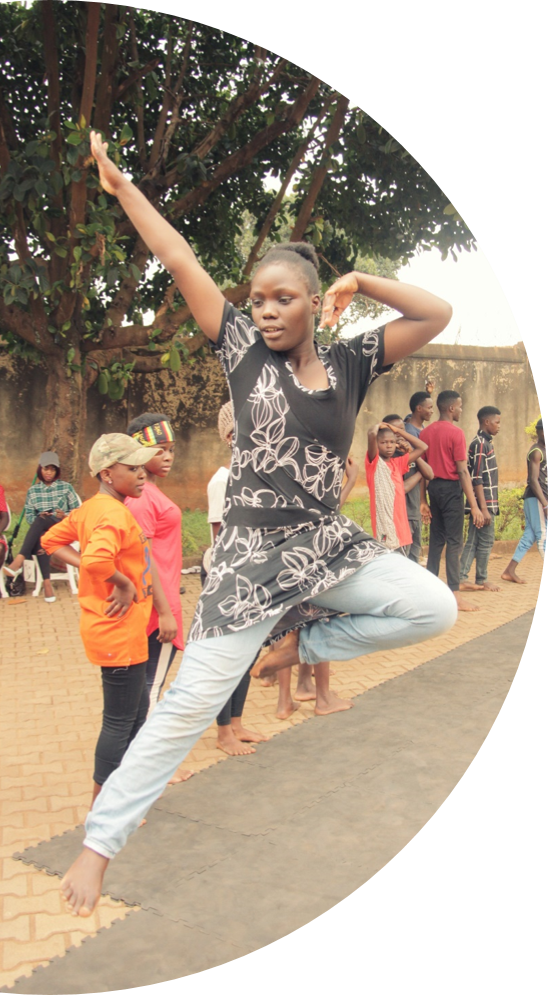 Uganda
Uganda
- Gender Inequality: Women are considered anything but equal to their male counterparts in Uganda due to a lack of education, cultural beliefs, and low access and acceptance of birth control. Most women are forced to accept the role of second-class citizens, resulting in less power to make decisions, get an education, obtain a profitable job, and be independent. Uganda has the 16th highest rate of child brides in the world with 34 percent of girls marrying before the age of 18.
- Instability at Home: Uganda houses 1.4 million refugees, more than any other African state. The average income is $2-$3 per day. Many fathers are absent and there is often alcoholism and domestic abuse at home. Some of the mothers, especially the refugees, are HIV+ and suffered rape before fleeing to Uganda.
- Gender-Based Violence: Violence against women and children and sexual exploitation through trafficking of women and girls are common occurrences leading to absence of peace within households and communities in many parts of Uganda.
- Education: For girls, formal schooling is often denied due to poverty, cultural norms that place a higher priority on boys’ education, a shortage of schools, or unsafe transportation to and from school. The literacy rate for women in Uganda is 76.5 percent, compared to a literacy rate of 84.8 percent for men.
How Our Grant Will Be Used
Together Women Rise’s $50,000 Featured Grant to MindLeaps will help create a Sexual and Reproductive Health (SRH) program for girls who are currently dropping out of school due to pregnancy and lack of social-emotional care on a regular basis. The project also works with the girls’ mothers in small-scale savings and loans programs.
The SRH program, known as “Safe Bodies & Healthy Minds in Uganda,” will support 100 girls over a two-year grant period. Each year, 50 girls will be enrolled in the SRH program. Indirectly, this grant will impact 500 women and families in Kampala, Uganda. In this community, MindLeaps has determined that providing holistic services to one girl will benefit another five family members through the redistribution of limited resources, as well as the positive, productive mindset that the child brings home.
Dance classes are part of a carefully crafted curriculum to develop the key cognitive and social-emotional skills vital to sexual and reproductive health and to success in school and work. The free, fun dance classes are rigorous – designed by professional dancers, psychologists, and educators with expertise in working with youth from vulnerable populations. Classes are designed to impart needed skills that are often lacking in the girls’ current environment, including memorization, language, grit, teamwork, discipline, creativity, and self-esteem. In refugee settings, even though youth are not always able to access education, MindLeaps observes a decrease in teen pregnancy, a reduction in substance abuse, and a deeper integration into the local community.
Mothers or other female caretakers of the girls enrolled in the dance program participate in the “Family Strengthening Program,” which conducts three months of business training to learn how to produce income-generating activities and run small businesses. After three months, MindLeaps provides seed funds to help women start businesses. These women return the funds over 6-12 months, and those funds are then moved to support a new woman’s business.
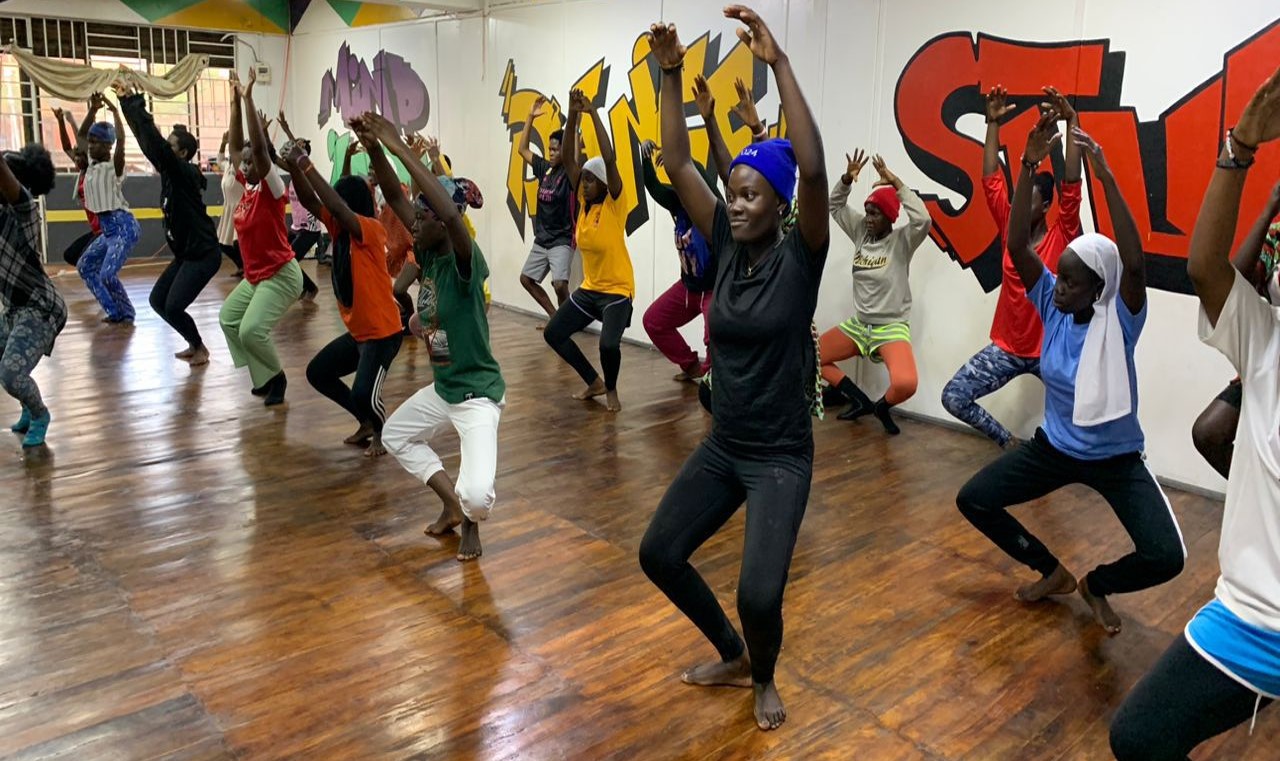
Parallel to the small business support, the Family Strengthening Program participants meet weekly at MindLeaps, and the women themselves create a savings group between each other. This allows them to make emergency loans to one another and access capital for family needs. MindLeaps tracks these savings rates and reports them weekly and monthly.
This project aims to help 100 girls graduate secondary school and become physically, mentally, and emotionally strong young women who are independent and self-reliant. That is measured by the number of girls who take the SRH program, stay in school, graduate from high school, and maintain a positive relationship with their mother or caregiver. There are five important ways to measure success:
- MindLeaps will use Tracker, a custom-built data application that measures social-emotional learning and produces quantitative data during the girls’ participation in the dance program.
- Track school attendance.
- The SRH program includes monthly self-assessments to evaluate if the girls are learning how to keep their bodies safe and understand risks.
- The savings rates of the girls’ mothers will be tracked in the Family Strengthening Program.
- School re-enrollment rate year-over-year through 12th grade will be monitored.
Direct Impact: 200 (100 girls plus their mothers)
Indirect Impact: Approximately 500 people
Budget
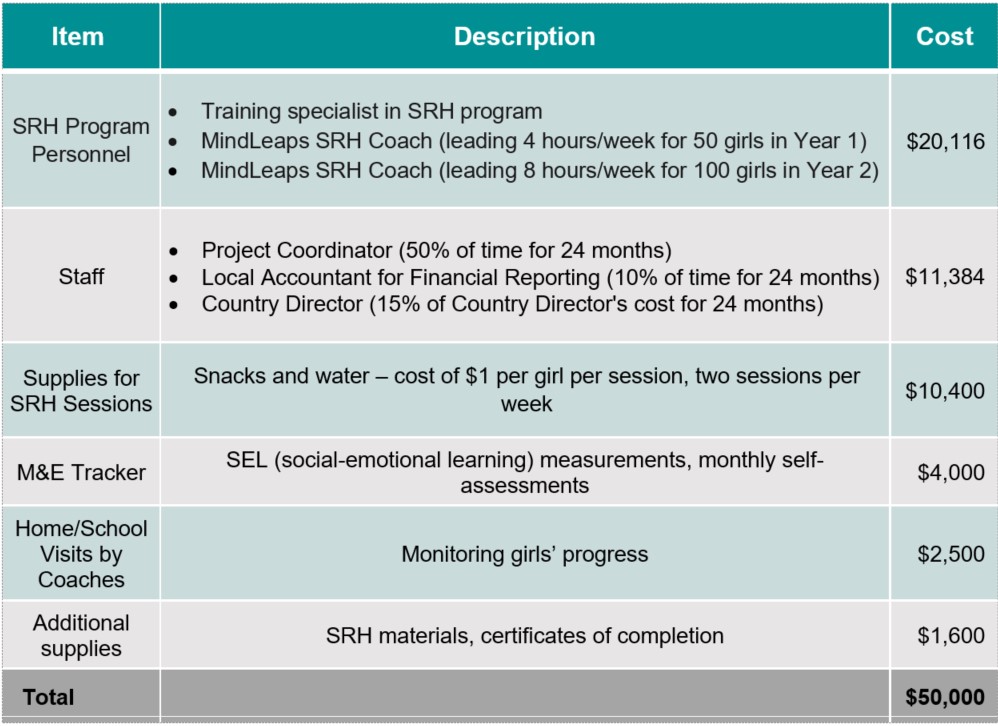
Why We Love This Project/Organization
MindLeaps uses a holistic approach to create change: fun yet rigorous dance classes for girls, plus microloans and business support for their mothers. Through working with both girls and their mothers, MindLeaps can create positive outcomes for entire families in Uganda. Previous success of their programs proves that these young girls need additional information, materials, and consistent support to stay in school.
Impact Story
Meet Juliette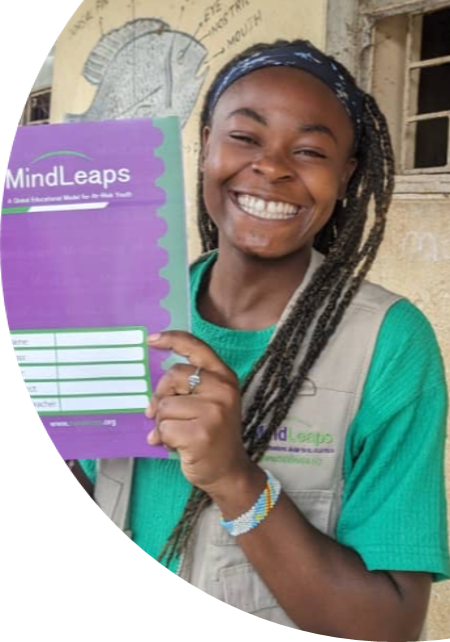
Juliette’s smile lights up an entire refugee settlement! What’s remarkable about 23 year-old Juliette is how genuine her sheer joy is. She grew up in Bukavu in the Democratic Republic of Congo (DRC), but as the war there raged on, she fled to Uganda.
Life as a refugee – and as a young woman – is challenging in Uganda. Juliette’s education was completely interrupted when she fled the DRC, and she found herself struggling to adapt to her new English-speaking environment. Juliette had never been expected to speak or understand English before arriving in Uganda. She lacked self-confidence and found it difficult to talk to people.
In 2019, that changed when she joined a pilot training program run by MindLeaps. MindLeaps was looking for athletic youth who wanted to learn the dance curriculum and methodology. The goal was to employ young women to build a longstanding program that would improve social-emotional learning skills of refugee and Ugandan children.
“I saw changes in myself,” Juliette said, reflecting on the 100+ hours she spent in MindLeaps’ Train the Trainer program. “I started finding it easier to speak to others. Since the MindLeaps program integrates language skills, I gained confidence shouting out words in English and catching instructions given in English. There were other young women in the training program, and we thought this kind of thing could lift up girls in our new community.”
Juliette was chosen to become a MindLeaps trainer and thrived in her role. She was a critical team member, helping establish a solid program serving 300 children annually as a part of the Ugandan Team. In 2022, Juliette shocked the staff by telling them she was leaving MindLeaps – to return to school! Late last year, Juliette graduated from high school in Uganda. She is now a proud graduate and back on the MindLeaps team, busy teaching young girls again.
|
MindLeaps asked Juliette, “How would you describe your work?” Her answer was clear: “MindLeaps builds people. That’s what I do.” |
When asked, “What do you think the young girls you teach need after their confidence increases and they start to communicate comfortably in English?” Juliette answered emphatically: “Training about our bodies. The girls are always asking me questions like, ‘How can I prevent getting pregnant?’ or ‘How do I know if these changes are normal in my body?’ I think we need to understand our bodies and how to protect our bodies.”
In the “Safe Bodies & Healthy Minds in Uganda” Project, Juliette will be one of the young MindLeaps women leading 50 girls in SRH training this year. MindLeaps female staff will be trained to master the content around SRH. They will then lead these classes on sensitive subjects with the girls in the program. Studying SRH from young women who these children already admire and seek counsel from will be essential to honest, robust learning.
Moving the Goal Posts
Moving the Goalpost (MTG) is a unique organization that links gender-based violence, reproductive health, HIV/AIDS, and economic empowerment within youth sports programming.
Founded in 2002 in Kilifi, in the rural coastal region of Kenya, MTG engages girls in football (soccer) and uses the sport as a tool to help girls and young women who lack opportunity to become leaders to create better futures for themselves.
Football for girls is central to MTG’s approach, strategies, and interventions as a tool for transformation. Girls receive training and leadership opportunities to organize and run football activities, peer education programs on sexual and reproductive health and rights, women’s rights, and economic empowerment.
MTG provides pathways and resources for girls to continue education and vocational training and find income-generating activities or employment. Additionally, MTG implements an Annual Sports Leadership Residential Training/Camp targeting adolescent girls and young women ages 7-25 with the objective of increasing the number of women in sports leadership roles in the organization, in the community, and the region. MTG has helped more than 50,000 girls find their voices and make healthy decisions about their future and fight for lasting change in the community and country.
LEARN MORE ABOUT MOVING THE GOALPOSTS
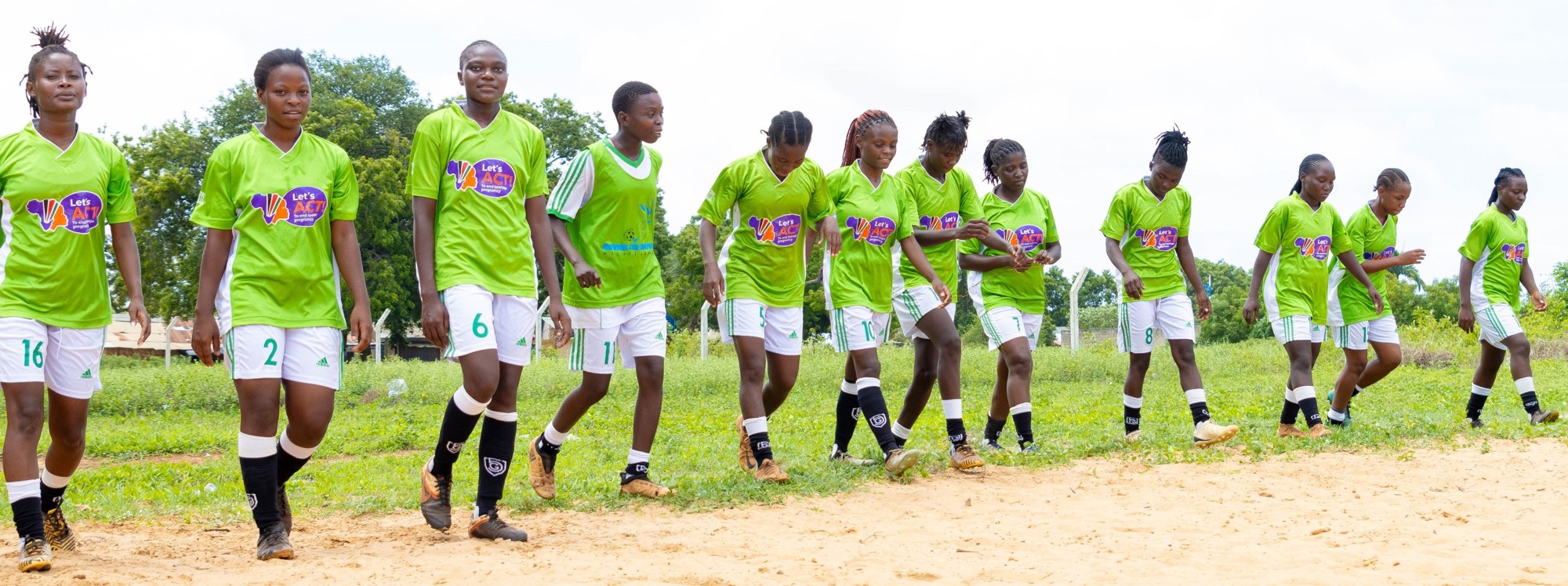
Life Challenges of the Women Served
Kenya
- Early Marriage and Pregnancy: Although the Kenyan Government has set the legal age of marriage at 18, child marriage is still rampant in certain communities and fueled by harmful gender and social norms, including existing traditional practices. The pregnancy rate among adolescent girls in Kenya is among the highest in the world. Early pregnancy can lead to poor health outcomes for both mother and baby, and negatively influence their life course. While there is no age of consent required for access to reproductive health services, access is severely limited with only 12 percent of health facilities offering reproductive health services to adolescent girls. These access issues are further aggravated with stigma and opposition to sexual and reproductive health rights in the school context.
- Gender Inequality. Over the past decade, legislative and policy reform has established a basis for gender equality across all socio-economic sectors in Kenya. However, despite the strides made, women and girls are particularly vulnerable groups in Kenya. Limited control over benefits from land and other resources constrains women’s successful participation in the economy. Additionally, unpaid childcare and domestic work limits women’s contribution and benefit from paid labor, as well as their access to market resources and information.
- Female Genital Mutilation/Cutting (FGM/C). While progress has been made to stop FGM/C in Kenya, it continues. The practice has a national prevalence in Kenya of 21 percent among women and girls ages 15 – 49 years – an estimated 4 million women and girls.
How Our Grant Will Be Used
Together Women Rise’s $50,000 Featured Grant funds the Binti Breaking Barriers Project. In Swahili (Kiswahili), “binti” means “daughter.” This project aims to increase the agency of those daughters – girls and young women – to tackle systemic barriers to gender inequality, demand their rights, and challenge violence against women and girls in their communities. It includes teen mothers who are grouped in psychosocial support groups, all against the backdrop of football.
The girls receive training and leadership opportunities to organize and run football activities, as well as peer education programs on sexual and reproductive health and rights, FGM/C, women’s rights, and economic empowerment. The project strengthens existing safe spaces for these young women. The safe spaces have a governance and leadership structure run by the girls, with leadership integrated in the football-based curriculum.
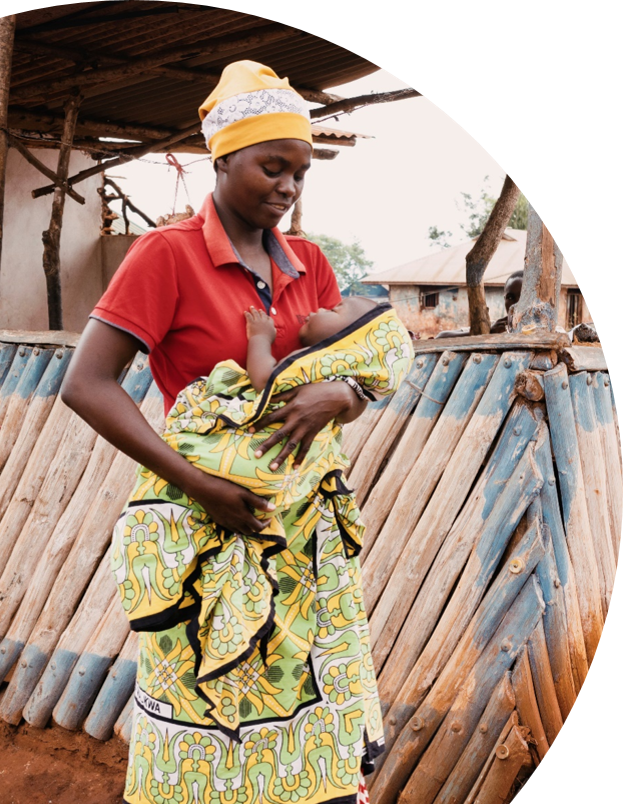 The project will enable MTG to engage with duty bearers (medical workers, teachers, and local administrators) through training and advocacy initiatives, aiming to use education to enhance gender-based violence reporting and support for girls’ and women’s rights.
The project will enable MTG to engage with duty bearers (medical workers, teachers, and local administrators) through training and advocacy initiatives, aiming to use education to enhance gender-based violence reporting and support for girls’ and women’s rights.
Girls who have experienced violence will be enrolled in support groups where they will receive psychosocial support and access to mentors and service providers in health and education.
Every girl enrolled in the program participates in a minimum of one weekly practice, league match, and sexual and reproductive health education session in their respective age group. Girls who have disabilities participate in adapted programs. MTG provides scholarship awards for girls to enroll and complete all levels of education, as well as support through this process. Additionally, MTG runs a special program for young women which includes entrepreneurship skills and saving groups.
Direct Impact: 2,000 girls and young women through football and other direct activities, 100 health and education service providers
Indirect Impact: 3,000 young girls, women, and community members through wider community outreach services
Budget
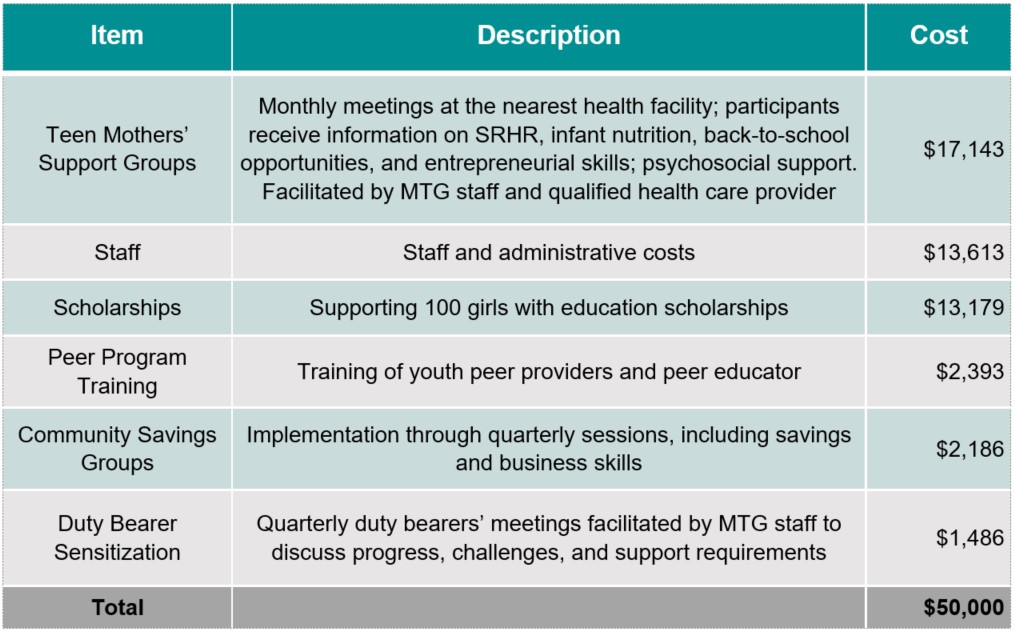
Why We Love This Project/Organization
We love this project because it is a holistic approach that engages young women in a nonthreatening way, through something they already love: football. It treats girls and young women, especially teen mothers, as whole beings, with education and support for mental health, sexual and reproductive health, economic and financial literacy, and more.
Impact Story
Meet Shallet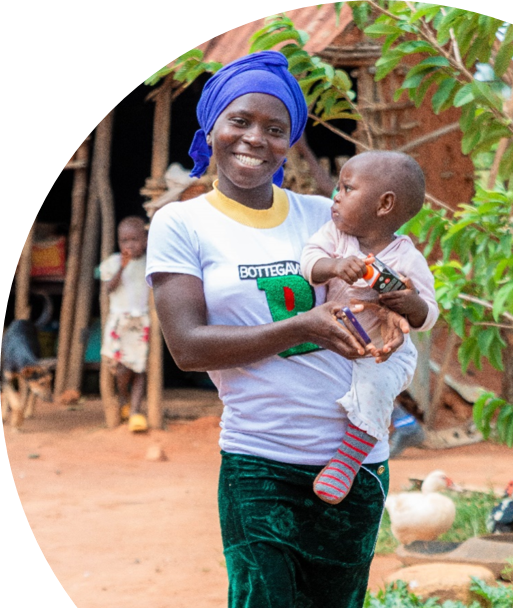
Shallet is a resilient young mother from Ndugumnani in Ganze, Kilifi County, Kenya. She is the tenth child in a family of eleven siblings whose parents make a living by burning and selling charcoal. Despite the financial hardships, Shallet’s determination to overcome her circumstances has been remarkable.
Shallet joined MTG in 2019 and played football in the under-13 category of MTG United women’s football team, quickly rising to the position of field leader. Unfortunately, after two years, she had to leave the team because the training grounds were too far from her school.
In 2022, during her final year of secondary school, Shallet learned she was pregnant. The father of her child, also a peer, was not ready to take responsibility. Determined to finish her education, Shallet returned to school shortly after giving birth, leaving her baby daughter in her mother’s care. Balancing school, motherhood, and the financial responsibilities of caring for her baby was challenging, but in 2023, Shallet joined MTG’s Binti Kwa Binti Group, where she learned about financial skills, reproductive health, and contraceptives, as well as hygiene, environmental care, child vaccines, nutrition, and mental health. Empowered by this education, Shallet started a small business selling Omena (sardines) and later moved to selling half cakes. This business has allowed her to become financially independent, supporting her baby and even helping her mother occasionally.
Shallet’s small business has given her a sense of independence and confidence. She no longer relies entirely on her mother and is able to meet her and her baby’s needs. She dreams of starting a petrol-selling business and wants to attend college to study hospitality.
The grant from Together Women Rise will significantly impact Shallet’s life, enabling her to expand her business and pursue her education. With financial assistance, she can invest in her new business, providing a more stable income for her family. The funds will help cover her college tuition fees, allowing her to study hospitality and build a better future for herself and her daughter.
|
“I couldn’t believe that I would get back to school and be able to sit for my exams after having my baby. Moving The Goalposts has given me the knowledge and confidence to start my own business and support my family. I now dream of starting a petrol-selling business and going to college to study hospitality. I want to prove that given a chance, anyone can overcome their challenges and succeed.” |
Learn More
Country, Customs, & Cuisine
Proven Platter
Recipes
Source Materials
UNICEF The Power of Sports and Play
Glossary
FGM/C: female genital mutilation/cutting
GBV: gender-based violence
MTG: Moving the Goalposts
NGO: non-governmental organization
SRH: sexual and reproductive health
SRHR: sexual and reproductive health and rights
The Global South: The Global South includes the countries that experience higher levels of poverty, income inequality, lower life expectancy, and harsh living conditions compared to the wealthier nations in the “Global North” – located mostly in North America and Europe. The Global South primarily includes many of the countries in Africa, Latin America, the Caribbean, Asia and the Pacific, and the Middle East.
